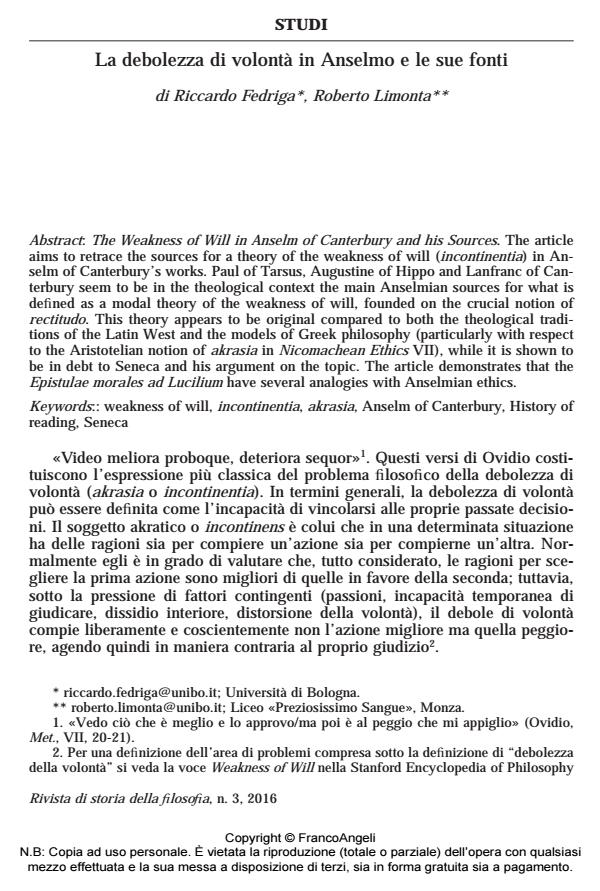La debolezza di volontà in Anselmo e le sue fonti
Titolo Rivista RIVISTA DI STORIA DELLA FILOSOFIA
Autori/Curatori Riccardo Fedriga, Roberto Limonta
Anno di pubblicazione 2016 Fascicolo 2016/3
Lingua Italiano Numero pagine 30 P. 357-386 Dimensione file 112 KB
DOI 10.3280/SF2016-003001
Il DOI è il codice a barre della proprietà intellettuale: per saperne di più
clicca qui
Qui sotto puoi vedere in anteprima la prima pagina di questo articolo.
Se questo articolo ti interessa, lo puoi acquistare (e scaricare in formato pdf) seguendo le facili indicazioni per acquistare il download credit. Acquista Download Credits per scaricare questo Articolo in formato PDF

FrancoAngeli è membro della Publishers International Linking Association, Inc (PILA), associazione indipendente e non profit per facilitare (attraverso i servizi tecnologici implementati da CrossRef.org) l’accesso degli studiosi ai contenuti digitali nelle pubblicazioni professionali e scientifiche.
The article aims to retrace the sources for a theory of the weakness of will (incontinentia) in Anselm of Canterbury’s works. Paul of Tarsus, Augustine of Hippo and Lanfranc of Canterbury seem to be in the theological context the main Anselmian sources for what is defined as a modal theory of the weakness of will, founded on the crucial notion of rectitudo. This theory appears to be original compared to both the theological traditions of the Latin West and the models of Greek philosophy (particularly with respect to the Aristotelian notion of akrasia in Nicomachean Ethics VII), while it is shown to be in debt to Seneca and his argument on the topic. The article demonstrates that the Epistulae morales ad Lucilium have several analogies with Anselmian ethics.
Parole chiave:Weakness of will, incontinentia, akrasia, Anselm of Canterbury, History of reading, Seneca
Riccardo Fedriga, Roberto Limonta, La debolezza di volontà in Anselmo e le sue fonti in "RIVISTA DI STORIA DELLA FILOSOFIA" 3/2016, pp 357-386, DOI: 10.3280/SF2016-003001